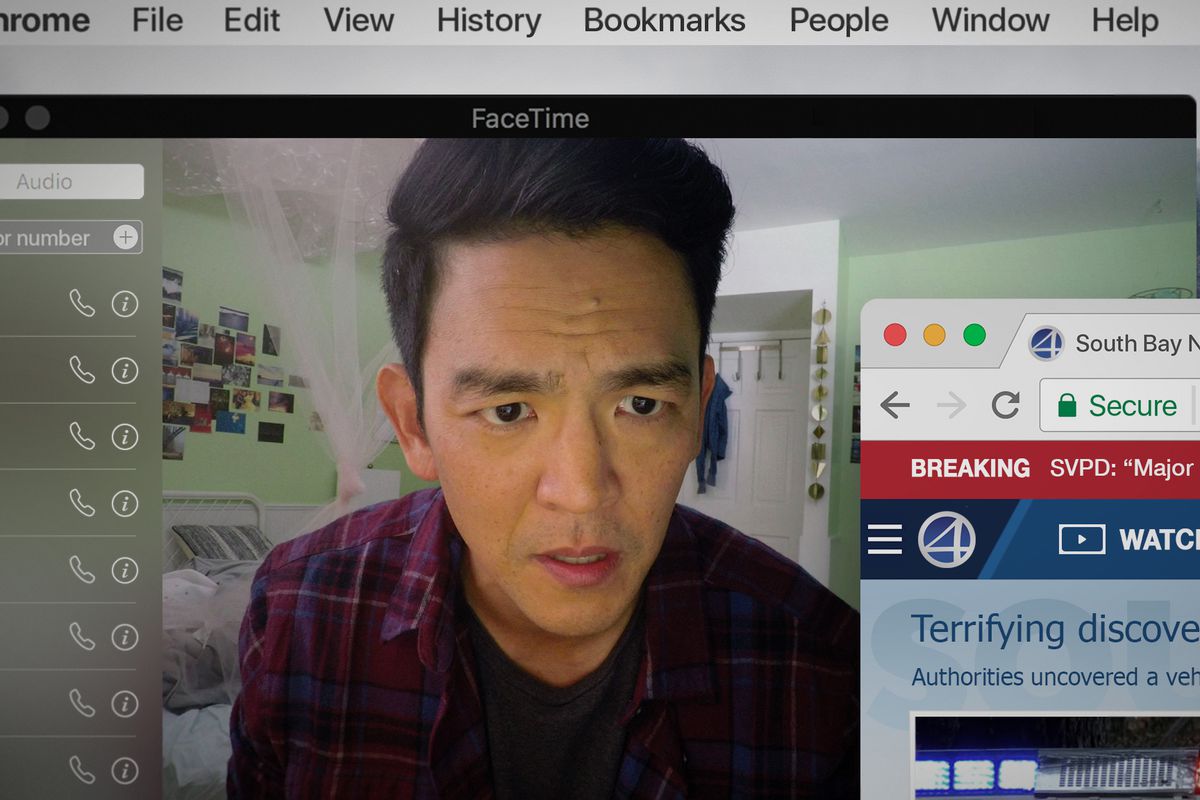Aneesh Chaganty’s feature directorial debut marks another entry into the gradually growing thriller sub-genre of movies that take place entirely within a computer screen. Popularised by the horribly average Unfriended and its sequel Unfriended: Dark Web, this style of film making is a natural evolution of the found-footage sub-genre, as our obsession with computer screens rapidly grows.
Searching differs from those horror-focused predecessors, however, by being a smarter thriller that holds back on the slapstick gore and instead opts for a much more realistic story of a missing teen and her mysterious internet history. John Cho, known perhaps best as Sulu in the Star Trek reboots, plays David Kim: the recently widowed father to his quietly grieving daughter, Margot (Michelle La). In an opening sequence akin to Pixar’s UP, we learn of the family’s earlier years and the subsequent illness that takes one of them away.
From here, a domestic drama unfolds as Margot goes missing, and John enlists the help of Detective Vick (Debra Messing) to track her down. Utilising tools like Facetime and iMessage, we get a glimpse of John while he slowly unravels through stress and guilt. It’s by far the best performance featured in Searching, and makes you wish that Cho was given more dramatic roles to sink his teeth in to.
Conversely, Michelle La’s portrayal of the enigmatic Margot is noticeably less stellar. She’s not awful, but her grief and melancholy comes across as half-baked for the snippets of her dual-life we get glimpses of, as David learns of what she’s been wrapped up in. These moments serve as useful character building, though, if primarily for David as we learn his relationship with his daughter wasn’t quite as picturesque as it first appears.
Purely from a presentation standpoint, Searchingis an impressive achievement. It uses the well-tread staples like Facetime to great effect, but also manages to create tension solely through a spreadsheet — not exactly an easy feat. There’s also some clever uses of soundtrack, such as David listening to downbeat classical piano music while he browses old photographs of his family. Sometimes this is a little on-the-nose, yes, but it compliments the natural feel of the film. There’s a few moments where this goes too far – a boiling kettle squealing to build tension – but these are thankfully kept to a minimum.
The most commendable aspect of the movie is that, unlike the aforementioned horrors that have pioneered this in-screen style, Searching doesn’t villainise the internet or computers. Yes, Margot’s interactions online are what potentially led to her disappearance (no spoilers), but David’s use of his iMac and his family computer are much more relatable than a ghost overtaking his computer.
Anybody savvy with the internet will think that they can predict the film’s ending from a few minutes in — I did, at least. But Searching has a few clever tricks up its sleeve to keep you guessing, and a few red herrings that completely change the film’s direction. Advertising for the movie suggested that it was a modern-day Hitchcock, and while I wouldn’t say the film managed to pull off this much of a bait-and-switch, it certainly packs some thriller-cliche punches that set it above your average instalment.
Some of the coverage you find on Cultured Vultures contains affiliate links, which provide us with small commissions based on purchases made from visiting our site.

